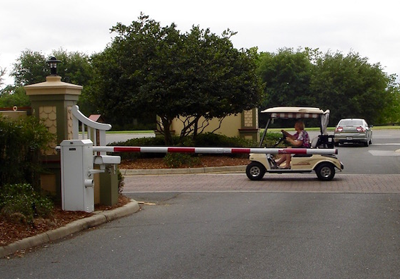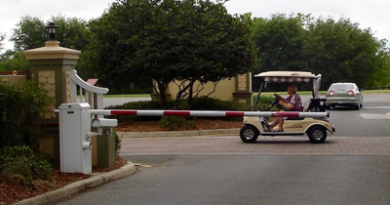New Vehicle Varieties Serve Golfers, While Fleets Sustain Manufacturers
A significant proportion of gated communities have their own golf courses, and along with private resort courses and publicly owned municipal courses, comprise about 13,500 or so courses across the nation. Despite the fact that closings have far outpaced openings now for many years, as seen in the table below, fleets remain a bulwark in the overall market.
Coronavirus impact
The coronavirus pandemic has closed golf courses earlier in the year, but around the country now golf courses are reopening, and it looks like that most of season will survive. Unlike other sports golf has almost a built-in social distance protocol, including social distancing. Nonetheless, the coronavirus will have an impact on we move about the golf course.
 With regard to traditional golf cars, they may be regulated to single users, rather than the usual two. In addition, we will likely see a variety of vehicles, including solo riders and remote-control caddies, such as Club Car’s Tempo™ Walk (shown). Club Car introduced the Tempo Walk at last January’s PGA Show. Talk about timing! It should be noted that several other companies exhibited remote-controlled caddies at the Show, and I believe, they actually made their appearance in the 2019 Show.
With regard to traditional golf cars, they may be regulated to single users, rather than the usual two. In addition, we will likely see a variety of vehicles, including solo riders and remote-control caddies, such as Club Car’s Tempo™ Walk (shown). Club Car introduced the Tempo Walk at last January’s PGA Show. Talk about timing! It should be noted that several other companies exhibited remote-controlled caddies at the Show, and I believe, they actually made their appearance in the 2019 Show.
Another innovation coming out the coronavirus pandemic is partitioned vehicle compartments. I have not seen this type of accessory introduced yet by manufacturers, but it would not be surprising at all to see dealers and course management introduce their own home-grown varieties. Among small vehicle manufacturers, Polaris is now marketing side-by-side and front and back partitions for their off-road work vehicles.
The central role of the fleet market
The fleet market has been the mainstay of the golf car industry for decades and only recently has it been superseded, in terms of units, by the combined components of the non-fleet market, PTVs and LDUs. Nonetheless, the fleet market continues to be a sustaining factor in the overall market. Fleet car demand is relatively predictable and because of the unit volume of the market provides the benefits of economies of scale in production. Other benefits include:
- Economies of volume production relate primarily to the frame and drive train of the vehicle across a wide range of models, including for PTVs and LDUs;
- On-going replacement demand provides a key source of used vehicles, which are refurbished and recycled into various markets;
Used vehicles off golf courses continue to provide an alternative to a new purchase
As noted, the on-going replacement demand results in a steady flow of used vehicles into the market. Thinking about buying used? Could be a good idea to look for an official refurbishment or remanufactured certificate. E-Z-GO and Yamaha have third party refurbishers which the companies recommend. The Club Car remanufacturing program is impressive as the following list of do-overs and replacement procedures indicate. Trained Club Car technicians break each used golf cart down to its aluminum chassis, inspect every component and system and replace worn or damaged parts including:
- Front and rear beauty panels
- Seats
- JCI 8 volt batteries
- Light components
- 4 Ply Kenda DOT Tires
- Wrap around 360 degree bumper
- Rack & Pinion assembly
- Pedal assembly
- DC to DC Converter
- Floormat
If your preference is another manufacturer, the above list would be handy to have in negotiating a deal with your local dealer.
The consequences of introducing lithium power to the fleet vehicle lineup
At the present time, most batteries in use and factory-installed in new vehicles shipped to courses are flooded lead acid. The introduction of lithium batteries by the two major fleet golf car suppliers, E-Z-GO and Club Car has begun to the change the makeup of battery power across the fleet market, with some important consequences.
- Lithium batteries have a significantly longer life than lead acid batteries;
- Lithium battery warranties now exceed 5 years and
- Even after 8 years of service may be still usable;
Impact of used vehicles powered by lithium batteries
Much longer battery life has two consequences: 1) Fleet recycling periods can be extended, and 2) Recycled vehicles have quite operable batteries and do not need replacing.
The fact that recycled vehicles coming off golf courses–-those with lithium batteries–will not need a new battery in the refurbishment process means that they will become both cheaper to refurbish and more valuable to consumers. While the price differential between new and used vehicles will be maintained, the price and value of used vehicles, largely because of their lithium batteries
Life is a two-edged sword, and our collective experience over the last months, whether we be golfers or not surely has proven this aphorism with Biblical roots. So, stay healthy, innovate, and move to the next stage!
Contact the Author: Steve Metzger at smetzger@smallvehicleresource.com. Or check out our website at www.smallvehicleresource.com, where you will find an extensive database of vehicle models and can make side-by-side comparisons of vehicles based on a full set of specifications.


